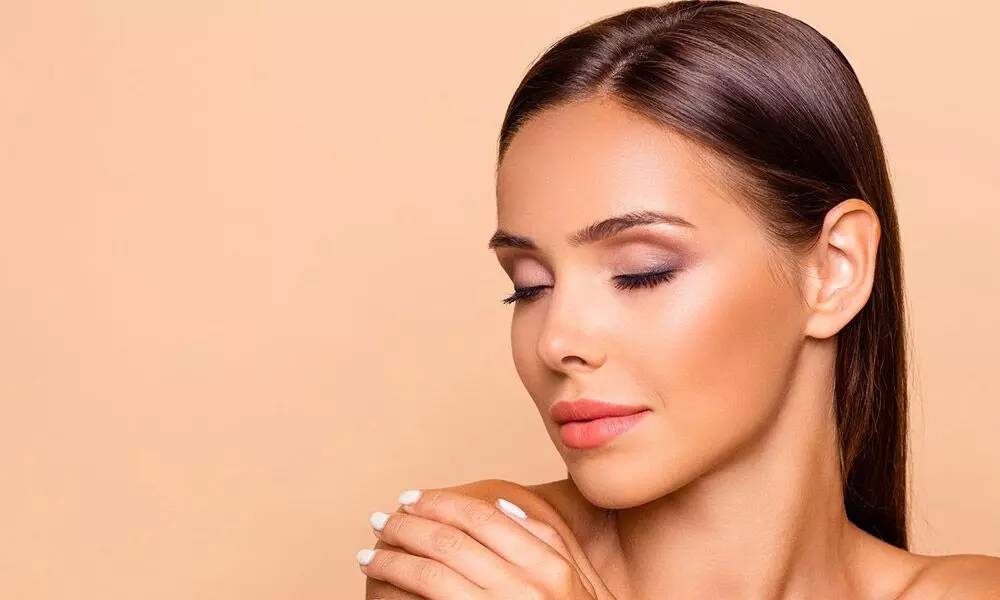Live
- Hyd’bad Book Fair organises book inspiration programmes
- Mega job mela on Dec 28
- Amit Shah’s removal from Union Cabinet demanded
- SCR to run weekly special trains
- TG to roll out Clean and Green Energy Policy soon: Bhatti
- Youth must take up farming, allied activities: Dhankhar
- Blankets, fruits distributed to mark Vajpayee’s birth anniv
- Hyderabad: Techie turns traffic volunteer, promotes road safety
- Visakha Dairy head Adari Anand joins BJP
- Christmas celebrated with religious fervour
Just In
Coping with skin issues during Covid


Coping with skin issues during Covid
Coronavirus is a virus that primarily affects the upper respiratory tract, although it can also damage the skin in some situations
Coronavirus is a virus that primarily affects the upper respiratory tract, although it can also damage the skin in some situations. The skin is quickly affected by coronavirus because it comes into contact with the skin and mucous membrane initially.
Acne breakouts, urticaria or hives, dramatic hair fall during and post-Covid are some of the most common dermatological symptoms that people have been experiencing. Additionally, the necessity of using personal hygiene products and PPE kits, masks, have resulted in skin irritation and breakouts, the most commonly reported being 'maskne'.
Excessive hand washing with detergents and disinfectants can irritate the skin's surface, causing irritation and possibly causing contact dermatitis. People who are facing acne, hives, or any other signs of skin inflammation need to practice gentle care and use the right tools and products as their skin is in a sensitive stage. The following are some general tips and precautions to help manage and prevent skin inflammation
It is preferable to cleanse the skin on a daily basis and moisturize regularly, particularly if you have dry skin or are prone to dryness. People facing acne issues need to be doubly careful of the products they use and the materials that come into contact with their skin. Skin aggravations can be avoided by using gentle skincare. When cleansing your face, use a mild, fragrance-free cleanser.
Put on the appropriate mask. Acne on the face can also be reduced by wearing a snug, comfortably fitting mask. An excessively tight or loose mask can irritate your skin further. Germs can be transferred from your mask to your face when you contact it. It's also vital to consider the cloth of your mask as well as your daily wear if you suffer from acne on the back or in other areas. Avoid synthetic materials like nylon, polyester, and rayon. If you experience a red painful rash where your mask or PPE kit has come into contact with the skin, keep in mind that the majority of the reactions are caused by friction, not an allergic reaction. Washing too much will make the discomfort worse. Use only water and a washcloth, or a very light skin cleanser, at most.
Rosacea can also be aggravated by the heat from a mask, a PPE kit, or by Covid infection. Hence, limit further sources of facial skin heating, such as hot liquids, alcohol, and spicy foods, by switching to a cooler-feeling mask. It's possible that you'll need to use prescription drugs.
Hives, commonly experienced by covid and post covid patients must be managed well. Your skin becomes itchier as it becomes dry, prompting you to scratch. Scratching, on the other hand, is one of the worst things you can do for hives. It is preferable to control scratching and keep your skin hydrated. Applying an anti-inflammatory drug or cream, situating yourself in front of a fan, or applying a cold compress to the affected area can feel comforting to your skin.
Don't test any skin or makeup products that can aggravate your skin. Even if the mask is worn for a few minutes it can make your skin more sensitive. To reduce skin problems, avoid using harsh products for the first time, such as a chemical peel, exfoliator, or retinoid. Possibly skip the makeup when you wear mask. Makeup is more likely to clog your pores and cause breakouts when worn under a mask. If you must wear makeup, look for items that are labelled "non-comedogenic" or "won't clog pores."
Apart from this, if you witness widespread small red bumps on the body and flat purple patches, discolorations of the white of the eyes (caused by conjunctivitis) "Covid toes" (purple discolouration in the toes that is more often seen in children), or blisters, please consult your doctor.

© 2024 Hyderabad Media House Limited/The Hans India. All rights reserved. Powered by hocalwire.com






